By Slava Tsukerman
(Editor’s note: Alexei Navalny has been released from prison pending his appeal.)
On Thursday July 18 Russia’s leading opposition figure lawyer and blogger, candidate for the position of the mayor of Moscow, Alexei Navalny was sentenced to five years.
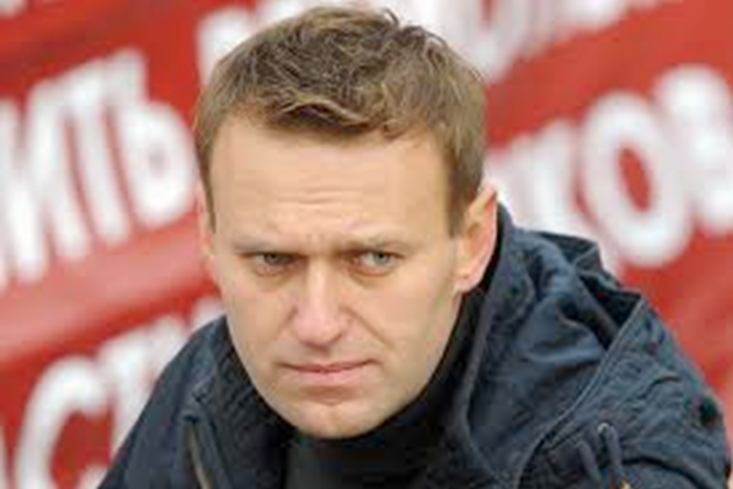
Here is New York Times coverage of the event.
NBC News report adds some more interesting details.
On the same evening in Moscow, St. Petersburg and many other cities, citizens took to the streets and squares to protest against the verdict. According to the official reports the police estimated the crowd in the centre of Moscow at 2,000, while some reporters said that the real police estimate was upward of 20,000.
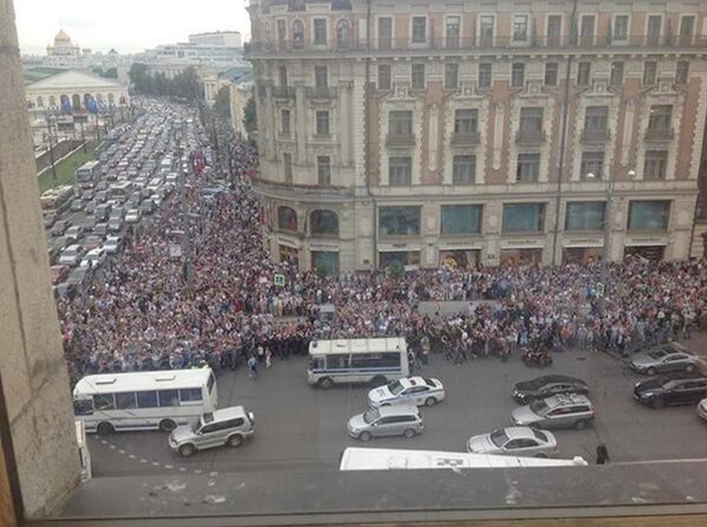
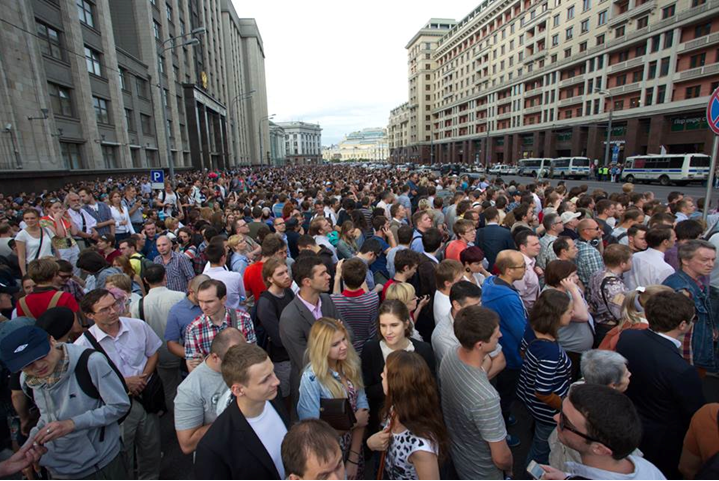
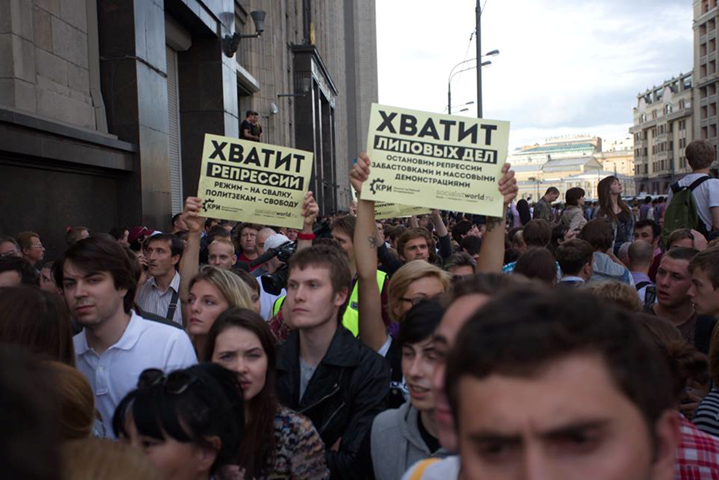
“Enough repressions!” “Enough fake trials!”
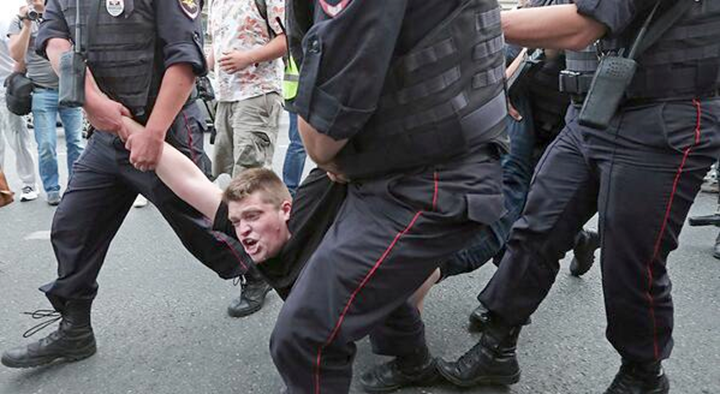
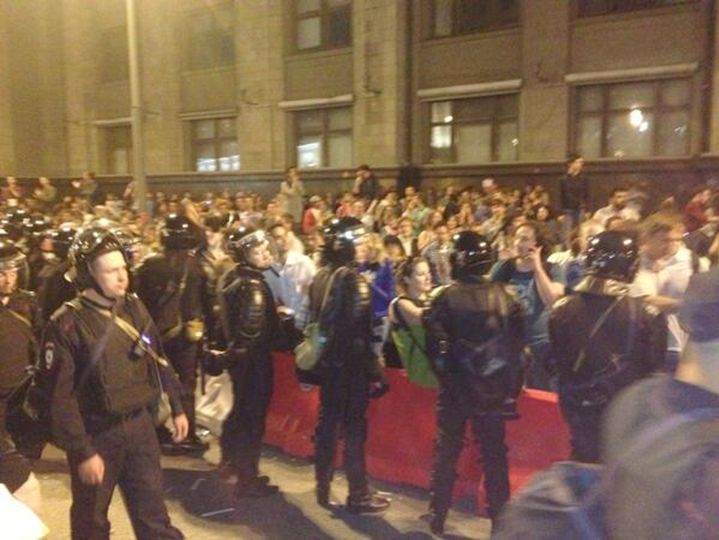
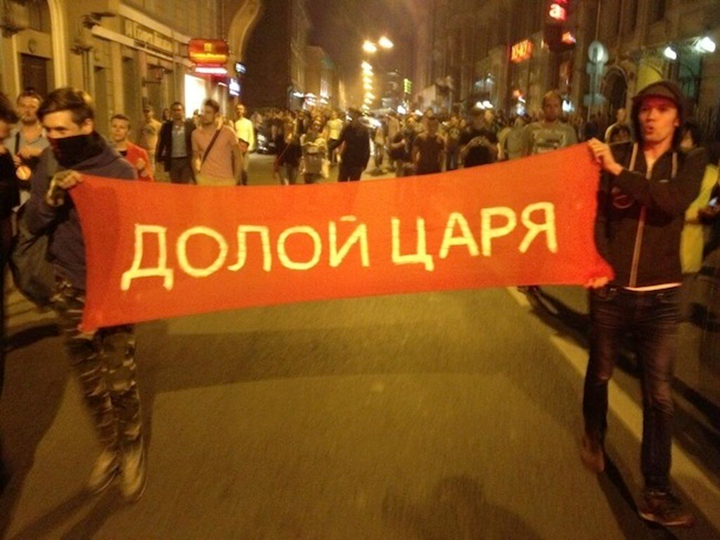
“Down with Tsar!”
Here is how some known Russians comment the event:
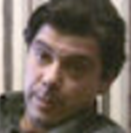 Cyril Rogov, journalist
Cyril Rogov, journalist
“Finding Navalny guilty in court in Kirov is a direct falsification of justice, carried out by political order. There was no evidence of any crime presented; it does not exist. The judge Blinov ignored almost all the facts, which were revealed during the trial.
The sole purpose of falsification of court decisions is to prevent political activity of Navalny and punish him for his activities in the past.”
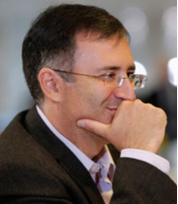 Sergei Guriev, a prominent Russian economist who recently fled to France, fearing his own political prosecution.
Sergei Guriev, a prominent Russian economist who recently fled to France, fearing his own political prosecution.
“The judge Blinov issued a verdict that falls under Art. 305 Part 2 (3 to 10) : The imposition of knowingly unjust verdict or decision. He didn’t do it only for himself.”
 Maria Gaidar, a politician, daughter of Yegor Gaidar, Prime Minister of Russia from 15 June 1992 to 14 December 1992, the main engineer behind economical perestroika.
Maria Gaidar, a politician, daughter of Yegor Gaidar, Prime Minister of Russia from 15 June 1992 to 14 December 1992, the main engineer behind economical perestroika.
“Alexei went to prison for us, all I can do for him now is to go to street and express my support.”
 Stanislav Belkovsky, political scientist.
Stanislav Belkovsky, political scientist.
“From this moment, the processes which I have called ‘Perestroika-2’, become irreversible. The active part of Russian society has not come to terms with contemporary political power, hope is lost, and this means the repetition of processes that shook the Soviet Union in the late 80s of the last century.”
 Maxim Shevchenko is the most anti–American, anti–western and anti–democratic journalist of Russia. Even he doesn’t approve the verdict to Navalny.
Maxim Shevchenko is the most anti–American, anti–western and anti–democratic journalist of Russia. Even he doesn’t approve the verdict to Navalny.
“If we had trusted our courts, we would have said to protesters: the theft by Navalny was proven, go prove opposite. But since we do not trust them, I think this verdict was politically motivated. Putting Navalny into jail is putting him into the most important university in his life, sending him to study political power. He will go out of prison as a complete leader of the protest movement. I think he was put into jail by the group of the government functionaries that does not understand this, or just deliberately promotes Navalny as a politician of the future.”
 Oleg Kozyrev, a journalist, political activist.
Oleg Kozyrev, a journalist, political activist.
“The sentence given Navalny has already changed the attitude of people towards their country and its future and is going to change it even more. Whatever happens to Navalny, I’m sure now the political power will get a million of new Navalnys.”

